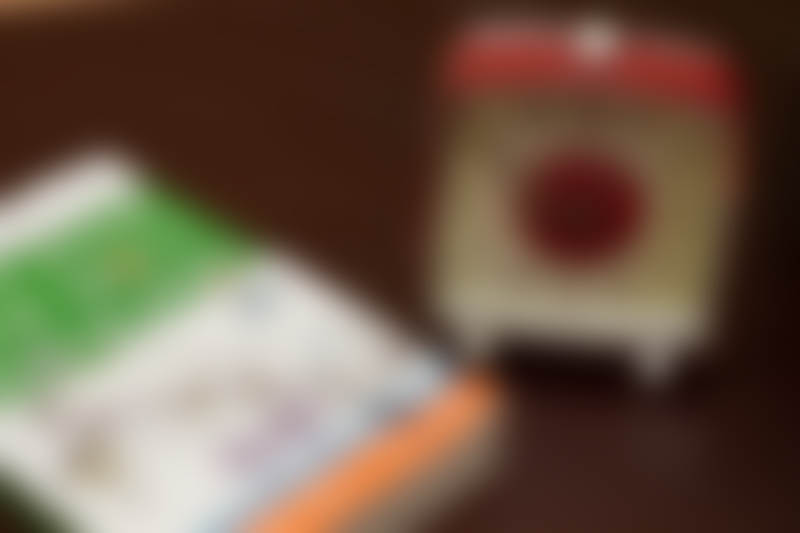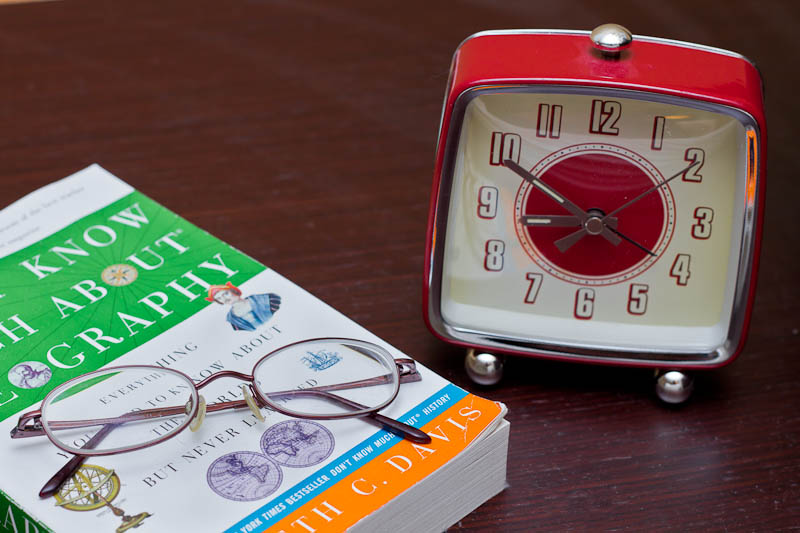I imagine corrective vision surgery is not typically on the packing list for a person planning a trip around the world. I’m not even sure I should say it was actually on my packing list. However, the idea of not dealing with contact lenses, lens solution, cases and glasses was a great motivator to finally look into the procedure.
I have worn glasses since I was about 7 years old and I couldn’t really say how long before that my vision wasn’t quite right. Over the years, I have gradually become more and more nearsighted finally stabilizing at a glasses prescription of roughly -8.50 diopters. For a frame of reference of how bad my vision was, by the time an object was close enough to my face to become in focus, I would become cross eyed and had to close one eye to avoid seeing double.
I have always imagined I would have Lasik surgery at some point, but there always seemed to be a good reason why now just was never the right time. In the last several years, I had felt I was just too busy with work or too strapped for cash (as was the life of a resident) to justify the expense. Eventually, the residency ended and I started my first ‘real job’ as Kenny liked to joke. At that point, the finances became somewhat less restrictive and my excuses became less concrete. For example, last year my excuse was “I’ve just ordered a year supply of contact lenses so I really should wait…” If I’m being honest, I was really just scared to have someone cut on my eyes. Who wouldn’t be!
I did my research on all the Lasik docs in town and found out who did what kind of procedure as well as what the ‘top of the line’ technology was. It was really important to me that my doctor should have a ridiculous amount of experience and was up front about their specific post-op complication rates. Obviously, this number should be low! After that, it was really helpful to get word of mouth accounts from people who already had the surgery (performed by the docs under consideration) and had good outcomes.
With my research done, pre-op checks good and inspired enough to actually go through with the process thanks to our trip, I scheduled and had my operation on February 24th! Despite my anxiety going in and the immediate post-procedure burning walking out (I was warned of this ahead of time), I have been completely satisfied with the outcome and am proud to report I now have 20/20 vision!!!
I still feel like I should be taking out my contacts come bedtime and I giggle like a pre-teen girl when I realize all over again I don’t have to! I’m not sure how long it will take to get used to my new eyes, but I am so happy I went forward with the surgery.
LAURA’S TIPS for LASIK SURGERY
- Talk with your doctor about which kind of surgery is right for you. “All laser” Lasik (also called “Bladeless Lasik”) is what I went with, but PRK may really be your best option depending what kind of activities or work you do. If you get hit in the head regularly (think boxer) or if you have thin corneas +/- a high prescription, definitely talk to your doctor about PRK. Because of my high prescription, this was something I talked in depth about with my ophthalmologist to make sure I was a safe candidate for Lasik eye surgery.
- Bring your post-op pain med + sleeping pill with you to the appointment! We had not even purchased the Tylenol PM when I went in for my procedure and figured we’d just pick it up on the way home. This was a VERY BAD IDEA! I suffered for 40 minutes on the drive home blind, in pain and crying when it was completely unnecessary. The numbing drops in your eyes wear off pretty quick after the procedure and you’re better off already having another drug in your system when they do. You definitely want to get home and go to sleep as quickly as possible. Also, it is true this discomfort really only lasts 4-6 hours. After my nap, I was (and have remained) pain free.
- Make sure your doctor tells you that you must be out of your (soft) contact lenses for at least 2 weeks before the surgery. If you have gas permeables, this is even longer. If no one mentions this to you, run the other way and find a different doctor. Contacts cause your corneas to swell from chronic irritation and change the shape of your eye. If you wear your lenses one day and have surgery the next, you run a greater risk of needing follow-up corrections. You also run a risk of your cornea becoming much thinner than anticipated post-op, which could lead to a very serious complication called corneal ectasia. In other words, your eye could start to bulge through your (now) too thin cornea which damages your vision and could require a corneal transplant. Yikes! For example, my corneas got 25 micrometers thinner in the 2 weeks I was out of my lenses.
- Enjoy the valium at the office. Don’t be afraid to ask for seconds when your procedure doesn’t start for 2 hours after your first hit. It will have worn off by then and if you’re nervous, it really takes the edge off. I wish I had asked for seconds!
- It’s okay to cry (tears of joy) after the surgery. Kenny was standing across the room when my doc asked if I could see the guy over his shoulder. I looked over at him and stuttered, “He has facial features” and promptly burst into tears. Just think of the tears as extra lubrication. Your eyes won’t mind.
Are there any tips you’d care to share about your own experiences with vision correction? Add your tips below! Also, if you have any questions about Lasik, post them here and I’d be happy to share my perspective!


